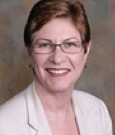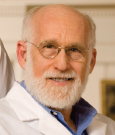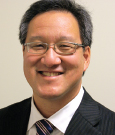With the provocative headline, “How Medical Care Is Being Corrupted,” an op-ed piece in The New York Times argued that “financial forces largely hidden from the public are beginning to corrupt care and undermine the bond of trust between doctors and patients.”1 The article warned that insurers, hospital networks, and regulatory groups are proposing or imposing financial rewards and penalties that can influence physicians’ decisions to use specific drugs or follow designated treatment pathways.
“This has raised concern in the oncology community because there is considerable debate among experts about what is optimal,” wrote Pamela Hartzband, MD, and Jerome Groopman, MD, of Harvard Medical School. The expert they cited in the article was Margaret A. Tempero, MD, FASCO, Editor-in-Chief of the Journal of the National Comprehensive Cancer Network (JNCCN), Professor of Medicine at the University of California, San Francisco (UCSF), and Director of the UCSF Pancreas Center. Dr. Tempero is also a past President of ASCO.
With those credentials, one might expect Dr. Tempero to be an advocate and supporter of cancer treatment guidelines, and she is. “I think for the most part, the guidelines should be followed, because they are based both on the degree of evidence available as well as the consensus among thought leaders about what the appropriate approach would be,” Dr. Tempero told The ASCO Post. But in the Times article, in an editorial Dr. Tempero previously wrote for JNCCN,2 and during the interview with The ASCO Post, Dr. Tempero noted that oncologists often see patients for whom deviation from treatment guidelines “makes sense.”
Financial vs Moral Incentive
“It bothered me that there would be a financial incentive to stick to a guideline, getting paid for doing what is right,” Dr. Tempero said. “We ought to have a moral incentive to stick to a guideline, but also have the flexibility, and without penalty, to deviate from the guideline when it makes sense for a given patient.”
She expressed concern about financial rewards for adhering to treatment guidelines becoming part of the practice model. “It seems to me, that would be a disincentive to deviate when you should deviate,” she stated.
“We all agree guidelines are not perfect; they probably cover 90%-plus of the patients that we see, but you have to be thoughtful about those patients for whom—for whatever reason—you should do things a little bit differently.”
Dr. Tempero has been very involved in guideline development, having served as Chairperson of the NCCN Guidelines Panel for Pancreatic Cancer, and was a founding board member of the NCCN. “One of the first decisions we made as an organization was to develop guidelines,” Dr. Tempero said. “Initially, these guidelines were intended to create some uniformity among the academic institutions that belonged to the NCCN, but they were really well done, I think, and they became adopted widely by many, including Medicare, as an indication for reimbursement. Now some NCCN guidelines are even used internationally.”
Impact of Targeted Therapies
“Variation in medical treatment is a necessary part of care … [and] especially so in cancer, where treatment has become increasingly personalized,” ASCO President Peter Paul Yu, MD, FASCO, noted in a letter to the editor of The New York Times following publication of the op-ed article.3 “Insurers need to allow for this as unexpected deviations from the ‘norm’ may result in equally good—if not better—patient outcomes,” he continued. Dr. Yu is a medical oncologist and hematologist and Director of Cancer Research at Palo Alto Medical Foundation in California.
To learn from real-world patient care how to improve outcomes for patients, ASCO is developing CancerLinQ. The “big data initiative” will collect and analyze cancer care data from millions of patient visits, together with expert guidance and other evidence to generate real-time, personalized assistance and quality feedback for physicians, Dr. Yu explained.
“We are also piloting new physician payment models, developed by practicing oncologists, that incentivize high-quality care, while preserving the central importance of physicians’ professional judgment and experience,” he wrote.
Root of the Problem
The driving force behind the recent efforts to impose strict adherence to treatment guidelines and rein in physician autonomy is “is the cost of health care and particularly the cost of cancer care,” Dr. Tempero stressed. “There is no control over the prices that pharmaceutical companies place on their drugs. We are spending so much time constraining what we do, but, to me, the root of the problem is the cost of the drugs,” she noted.
“There is huge inequity in the cost of drugs as this relates to value. Cost has been set on what the market will bear, and apparently the market has been bearing everything. Now we are in this crisis that is causing us to put fetters on the providers, and Medicare is squeezing payments to physicians to the point where it is bare bones now. Yet [the Centers for Medicare & Medicaid Services] pays huge amounts for these drugs. It doesn’t make sense,” Dr. Tempero commented.
A New Paternalism?
At the end of The New York Times op-ed piece, the authors stated that the “past paternalism where doctors imposed their views on the patient” has been replaced by “a new paternalism, largely invisible to the public, diminishing the autonomy of both doctor and patient.”
Asked if she agreed that a “new paternalism” is taking root, Dr. Tempero replied, “In a way, I do, because with the Affordable Care Act, there is going to be a tendency to go to a bundled payment for an episode of care, so you are going to be given only so much money to work with. And that is a form of paternalism. We have not had that kind of a handicap in the past, but I see that coming. When it does, it will be important to keep practices whole so that we can continue to deliver the quality care our patients deserve.” ■
Disclosure: Drs. Hartzband, Groopman, and Tempero reported no potential conflicts of interest.
References
1. Hartzband P, Groopman J: How medical care is being corrupted. The New York Times. November 18, 2014. Available at www.nytimes.com. Accessed December 17, 2014.
2. Tempero M: Incentive-based oncology: Unintended consequences? J Natl Compr Canc Netw 12:1069, 2014.
3. Yu PP: Financial incentives in health care. The New York Times. November 27, 2014. Available at www.nytimes.com. Accessed December 17, 2014.





